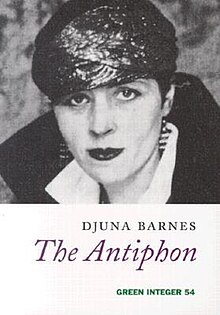
Thomas Stearns Eliot was a poet, essayist and playwright. He is considered to be one of the 20th century's greatest poets, as well as a central figure in English-language Modernist poetry. His use of language, writing style, and verse structure reinvigorated English poetry. He is also noted for his critical essays, which often re-evaluated long-held cultural beliefs.

Edward James "Ted" Hughes was an English poet, translator, and children's writer. Critics frequently rank him as one of the best poets of his generation and one of the twentieth century's greatest writers. He was appointed Poet Laureate in 1984 and held the office until his death. In 2008, The Times ranked Hughes fourth on its list of "The 50 greatest British writers since 1945".
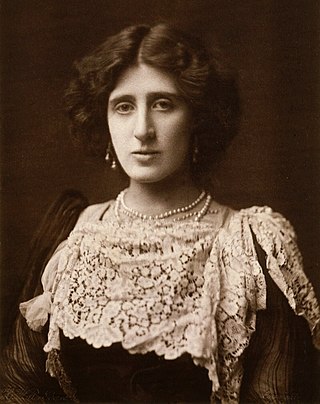
Lady Ottoline Violet Anne Morrell was an English aristocrat and society hostess. Her patronage was influential in artistic and intellectual circles, where she befriended writers including Aldous Huxley, Siegfried Sassoon, T. S. Eliot and D. H. Lawrence, and artists including Mark Gertler, Dora Carrington and Gilbert Spencer.

Edwin Muir CBE was a Scottish poet, novelist and translator. Born on a farm in Deerness, a parish of Orkney, Scotland, he is remembered for his deeply felt and vivid poetry written in plain language and with few stylistic preoccupations.
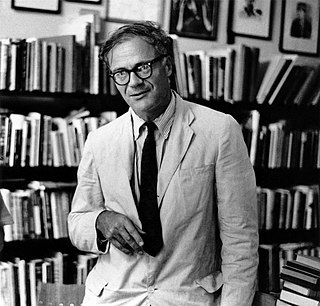
Robert Traill Spence Lowell IV was an American poet. He was born into a Boston Brahmin family that could trace its origins back to the Mayflower. His family, past and present, were important subjects in his poetry. Growing up in Boston also informed his poems, which were frequently set in Boston and the New England region. The literary scholar Paula Hayes believes that Lowell mythologized New England, particularly in his early work.
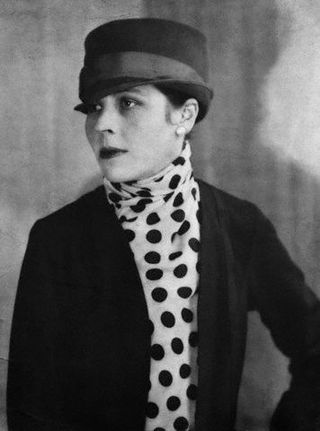
Djuna Barnes was an American artist, illustrator, journalist, and writer who is perhaps best known for her novel Nightwood (1936), a cult classic of lesbian fiction and an important work of modernist literature.

Elisha Vanslyck Cook Jr. was an American character actor famed for his work in film noir. According to Bill Georgaris of They Shoot Pictures, Don't They, Cook appeared in a total of 21 films noir, more than any other actor or actress. He played cheerful, brainy collegiates until he was cast against type as the bug-eyed baby-faced psychopathic killer Wilmer Cook in the 1941 version of The Maltese Falcon. He went on to play deceptively mild-mannered villains. Cook's acting career spanned more than 60 years, with roles in productions including The Big Sleep, Shane, The Killing, House on Haunted Hill, and Rosemary's Baby.

Esmé Valerie Eliot was the second wife and later widow of the Nobel prize-winning poet T. S. Eliot. She was a major shareholder in the publishing firm of Faber and Faber Limited and the editor and annotator of a number of books dealing with her late husband's writings.
The Family Reunion is a play by T. S. Eliot. Written mostly in blank verse, it incorporates elements from Greek drama and mid-twentieth-century detective plays to portray the hero's journey from guilt to redemption. The play was unsuccessful when first presented in 1939, and was later regarded as unsatisfactory by its author, but has been successfully revived since the 1940s. Some critics have thought aspects of the tormented hero reflect Eliot's difficulties with his estrangement from his first wife.

In the Heights is a musical with concept, music, and lyrics by Lin-Manuel Miranda and a book by Quiara Alegría Hudes. The story is set over the course of three days, involving characters in the largely Dominican American neighborhood of Washington Heights in Upper Manhattan, New York City.

Nightwood is a 1936 novel by American author Djuna Barnes that was first published by publishing house Faber and Faber. It is one of the early prominent novels to portray explicit homosexuality between women, and as such can be considered lesbian literature.

Patchin Place is a gated cul-de-sac located off of 10th Street between Greenwich Avenue and the Avenue of the Americas in the Greenwich Village neighborhood of Manhattan, New York City. Its ten 3-story brick row houses, said to have been originally built as housing for the Basque staff of the nearby Brevoort House hotel, have been home to several famous writers, including Theodore Dreiser, E. E. Cummings, John Cowper Powys and Djuna Barnes, making it a stop on Greenwich Village walking tours. Today it is a popular location for psychotherapists' offices.
Nightwood Theatre is Canada's oldest professional women's theatre and is based in Toronto. It was founded in 1979 by Cynthia Grant, Kim Renders, Mary Vingoe, and Maureen White and was originally a collective. Though it was not the founders' original intention, Nightwood Theatre has become known for producing feminist works. Some of Nightwood's most famous productions include This is For You, Anna (1983) and Good Night Desdemona (1988). Nightwood hosts several annual events including FemCab, the Hysteria Festival, and Groundswell Festival which features readings from participants of Nightwood's Write from the Hip playwright development program.
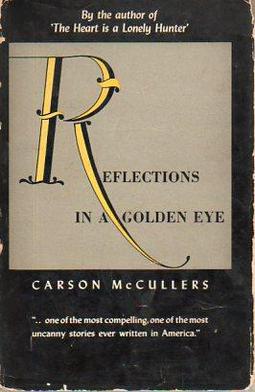
Reflections in a Golden Eye is a 1941 novel by American author Carson McCullers.
Jennifer Sheila Uglow is an English biographer, historian, critic and publisher. She was an editorial director of Chatto & Windus. She has written critically acclaimed biographies of Elizabeth Gaskell, William Hogarth, Thomas Bewick, and Edward Lear, and a history and joint biography of the Lunar Society, among others, and has also compiled The Macmillan Dictionary of Women's Biography.
The Lily of Killarney is an opera in three acts by Julius Benedict. The libretto, by John Oxenford and Dion Boucicault, is based on Boucicault's own play The Colleen Bawn. The opera received its premiere at Covent Garden Theatre, London on Monday 10 February 1862.

When You Reach Me is a Newbery Medal-winning science fiction and mystery novel by Rebecca Stead, published in 2009. It takes place on the Upper West Side of New York during 1978 and 1979 and follows a sixth-grade girl named Miranda Sinclair. After Miranda finds a strange note, which is unsigned and addressed only to "M," in her school library book, a mystery is set into motion—one which Miranda ultimately must face alone. At the same time, Miranda juggles school, relationships with her peers, and helping her mom prepare for an upcoming appearance on The $20,000 Pyramid, a popular game show hosted by Dick Clark. Important characters in the story include Miranda's mother; Richard, her mom's good-natured boyfriend; Sal, Miranda's childhood best friend; and a homeless man who lives on Miranda's block and is referred to only as "the laughing man." Central themes in the novel include independence, redemption, and friendship.
Janet Buchanan Adam Smith OBE was a Scottish writer, editor, literary journalist, and champion of Scottish literature. She was active from the 1930s through to the end of the century.

Audrey Evelyn James was an English socialite included in The Book of Beauty by Cecil Beaton. Through her mother she was allegedly the illegitimate granddaughter of King Edward VII, and she herself was the illegitimate daughter of The 1st Viscount Grey of Fallodon.
Plymouth Town is a ballet composed by Benjamin Britten in 1931. A typical performance lasts about 25 minutes.
